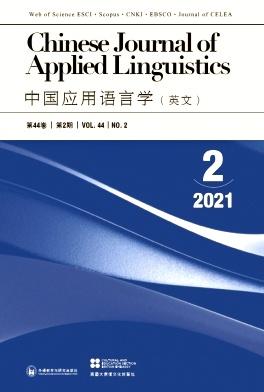心理学与语言学习:探索积极联系
IF 1.1
4区 教育学
Q3 EDUCATION & EDUCATIONAL RESEARCH
引用次数: 0
摘要
本文概述了积极心理学(PP),或研究使生活最有价值的因素(Peterson, 2006),并通过详细介绍五项干预研究来证明其有效性。通过将第二语言教学中的PP目标和语言目标结合起来,研究显示出多重的、并行的结果,提高了教师和学习者的幸福感,提高了语言水平。一个重要的警告是,当PP干预措施专门针对个别学习者时,效果最好。本文章由计算机程序翻译,如有差异,请以英文原文为准。
Where Psychology Meets Language Learning: Exploring the Positive Nexus
Abstract This paper provides an overview of positive psychology (PP), or the study of elements that make life most worth living (Peterson, 2006), and demonstrates its efficacy by detailing five intervention studies. By aligning PP objectives and linguistic aims in second language teaching and learning, the studies show multiplied, concurrent results, heightened teacher and learner wellbeing and improved language proficiency. One important caveat is that PP interventions work best when they cater specifically to individual learners.
求助全文
通过发布文献求助,成功后即可免费获取论文全文。
去求助
来源期刊

Chinese Journal of Applied Linguistics
EDUCATION & EDUCATIONAL RESEARCH-
CiteScore
1.50
自引率
0.00%
发文量
377
期刊介绍:
The Chinese Journal of Applied Linguistics (CJAL) (formerly known as Teaching English in China – CELEA Journal) was created in 1978 as a newsletter by the British Council, Beijing. It is the affiliated journal of the China English Language Education Association (founded in 1981 and now the Chinese affiliate of AILA [International Association of Applied Linguistics]). The Chinese Journal of Applied Linguistics is the only English language teaching (ELT) journal in China that is published in English, serving as a window to Chinese reform on ELT for professionals in China and around the world. The journal is internationally focused, fully refereed, and its articles address a wide variety of topics in Chinese applied linguistics which include – but also reach beyond – the topics of language education and second language acquisition.
 求助内容:
求助内容: 应助结果提醒方式:
应助结果提醒方式:


